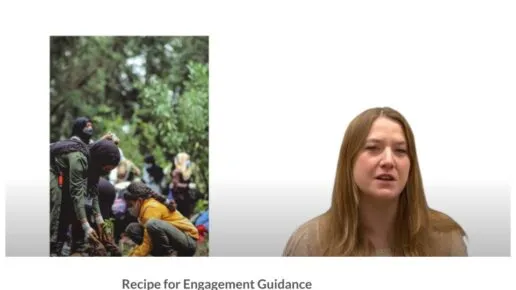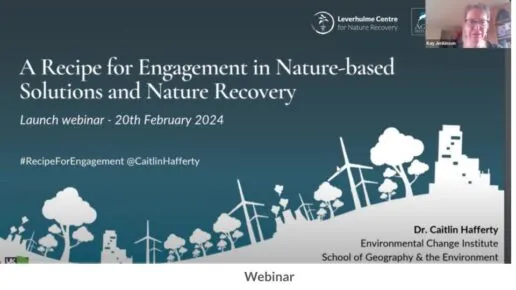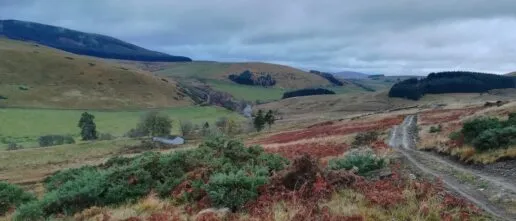This project aims to promote Nature-based Solutions (NbS) and nature recovery initiatives that are more effective, equitable, and financially sustainable by leveraging participatory governance processes. It is part of two broader projects, the NERC-funded Agile Initiative project on ‘Scaling up NbS in the UK’ and the Leverhulme Centre for Nature Recovery, and is being conducted in collaboration with the Nature-based Solutions Initiative. The solutions-focused and interdisciplinary project aims to deliver relevant, timely, and actionable evidence and recommendations for practitioners and policy-makers in the UK.
NbS has gained international attention for their potential to deliver multiple sustainability goals by addressing climate change, biodiversity decline, inequality and human well-being issues. However, it is crucial that NbS are designed and implemented in a holistic, integrated, and inclusive way to deliver multiple benefits while addressing trade-offs between goals. At its core, this approach involves ensuring that NbS treats humans and nature as interconnected, while tackling unequal power dynamics and promoting socially ‘just’ outcomes. This project ultimately aims to promote more integrated approaches to facilitate interconnected thinking among decision-makers, and more joined-up policy support and implementation at local, regional, and national scales.
The main project activities and outcomes include:
- Co-designing the project with partners from across the public, private and third sectors in the UK. Partners included Highlands Rewilding, Nattergal, Defra, Natural England, Environment Agency, BBOWT, National Trust, NFU, RBG Kew, UK CEH, WWF, University of Aberdeen and others. This helped to shape the research and deliver outputs that are relevant, useful, and actionable in policy and practice.
- Working as part of an interdisciplinary team to produce the Nature-based Solutions Knowledge Hub, which is an integrated one-stop resource to guide users through the process of governing, designing, and funding NbS and monitoring the outcomes. Specifically, this project delivered the Recipe for Engagement (RfE), a new flexible guide for the participatory governance that can be applied and adapted to a wide range of nature recovery and NbS projects.
- Working closely with Highlands Rewilding to design and implement a ‘Community Engagement Roadmap’, which sets out some key principles and practical steps for engaging and delivering community benefits from rewilding projects. This project team also collaborated with Joshua Davis (lead author) at the Countryside and Community Research Institute to produce an evidence report and guide for Nattergal on ‘Best Practice Engagement in Landscape-scale Nature Recovery Projects’.
- Engaged with policy-makers and produced a policy brief on ‘Embedding nature recovery in the Levelling-up and Regeneration Bill’ which was submitted as evidence to the House of Lords.
In addition to the impact-focused outputs, this project is publishing a series of academic papers on the politics, power, and participation dynamics of NbS and nature recovery.
Related News Articles
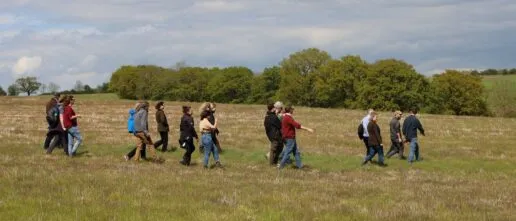
Stakeholder Engagement Best Practice – Nattergal’s Ten-Point Approach
Effective stakeholder engagement is key to improved land-use decision-making, natural resource management, and achieving mutually beneficial outcomes for individuals, communities, and places.
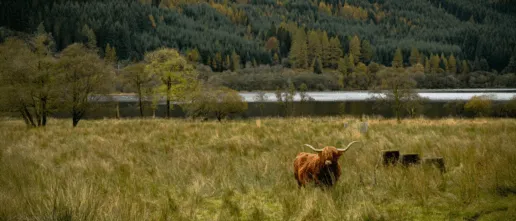
From Urgency to Participation: It is important that nature recovery initiatives can ‘slow down’ to embrace community engagement & local knowledge.
Allegra Bundy, MSc student, reflects on the participatory process and key findings of her dissertation project, ‘From Urgency to Participation: Navigating Complexities in Nature Recovery in the Scottish Highlands’.
Related Research Themes

Society
Encompassing the governance and socio-cultural dimensions of nature recovery.
Related Outputs
Equity in unilateral value chain policies: A monitoring framework for the EUDR and beyond
Unilateral value chain policies have recently emerged as a key strategy of international land use governance. They’re part of a broader trend towards trade-based environmental policies, from corporate due diligence to sustainability certification and trade moratoria, that has been critiqued for reinforcing inequities in global trade. Such critique has been heightened by the current rise […]
The Nattergal Report on Stakeholder Engagement Best Practice for Landscape-scale Nature Recovery Projects
The Nattergal Report on Engagement Best Practice for Landscape-scale Nature Recovery Projects. Developed for our Boothby Wildland Landscape Recovery project, and funded by DEFRA, the report was led by the Countryside and Community Research Institute (CCRI) at the University of Gloucestershire and the Leverhulme Centre for Nature Recovery and Agile Initiative projects at Oxford University, […]
Unpacking the politics of Nature-based Solutions governance: Making space for transformative change
Pre-print paper on the politics of Nature-based Solutions governance for transformative change. This paper finds that dominant framings can end up undermining, rather than supporting, the changes that are needed for transformation to happen. Techno-centric and market-oriented approaches, perceptions of risk and uncertainty, and “democracy washing” risk perpetuating power imbalances and superficial participation. Making space […]
Engagement in the digital age: Understanding “what works” for participatory technologies in environmental decision-making
Paper published in the Journal of Environmental Management examining the benefits and drawbacks of digital tools for engagement. The paper tests the applicability of current theories for engagement in digital and remote settings, finding that key factors known to shape outcomes in engagement take on new dimensions in digital environments. New considerations are suggested which make engagement […]
Unpacking the politics of Nature-based Solutions governance: Making space for transformative change
Nature-based Solutions (NbS) have gained global attention for their transformative potential to simultaneously address biodiversity loss, climate change, and human well-being. However, there are concerns that dominant framings reinforce vested interests, marginalise alternative perspectives, and lead to persistent patterns of inequality and injustice. While participatory governance of NbS is widely acclaimed to support more equitable […]
Nature-based Solutions Knowledge Hub
The Nature-based Solutions Knowledge Hub is an integrated one-stop resource to guide users through the process of governance, designing and funding Nature-based Solutions (NbS), and monitoring the outcomes. The Hub is aimed at those involved with NbS in the UK, though much of the guidance would also be applicable in other locations. Visit the Knowledge […]
Embedding nature recovery in the Levelling-up and Regeneration Bill Agile Initiative Research Brief
This research brief compiles evidence from the academic literature to demonstrate the vital role that nature can plan in securing health, well-being, and socio-economic benefits for the deprived communities targeted by the levelling-up programme.
Harnessing the power of digital tools for community engagement in rewilding
Social science researchers from the Leverhulme Centre for Nature Recovery are collaborating with Highlands Rewilding to explore innovative digital technologies for enhancing community engagement in rewilding. To help bring multiple partners together across the landscapes, Highlands Rewilding and the LCNR have co-developed three digital community engagement platforms using software called Commonplace. The Commonplace team provides […]
WEBINAR: Unlocking the power of engagement for nature recovery and nature-based solutions
This webinar is relevant for anyone working in the on-the-ground delivery, design and/or strategy of a broad range of nature recovery and nature-based solutions projects which aim to benefit both people and nature. This includes conservation, restoration, rewilding, urban greening, community gardening, sustainable forestry, regenerative agriculture, and more. It is aimed at practitioners working on […]
Unlocking the power of engagement for nature recovery and nature-based solutions
The ‘Unlocking the power of engagement for nature recovery and nature-based solutions’ webinar took place on 20th February 2024 and was aimed at anyone working in the on-the-ground delivery, design and/or strategy of a broad range of nature recovery and nature-based solutions projects which aim to benefit both people and nature. This includes conservation, restoration, rewilding, […]
Embedding nature recovery in the Levelling-up and Regeneration Bill Agile Initiative Research Brief
This research brief compiles evidence from the academic literature to demonstrate the vital role that nature can plan in securing health, well-being, and socio-economic benefits for the deprived communities targeted by the levelling-up programme.

